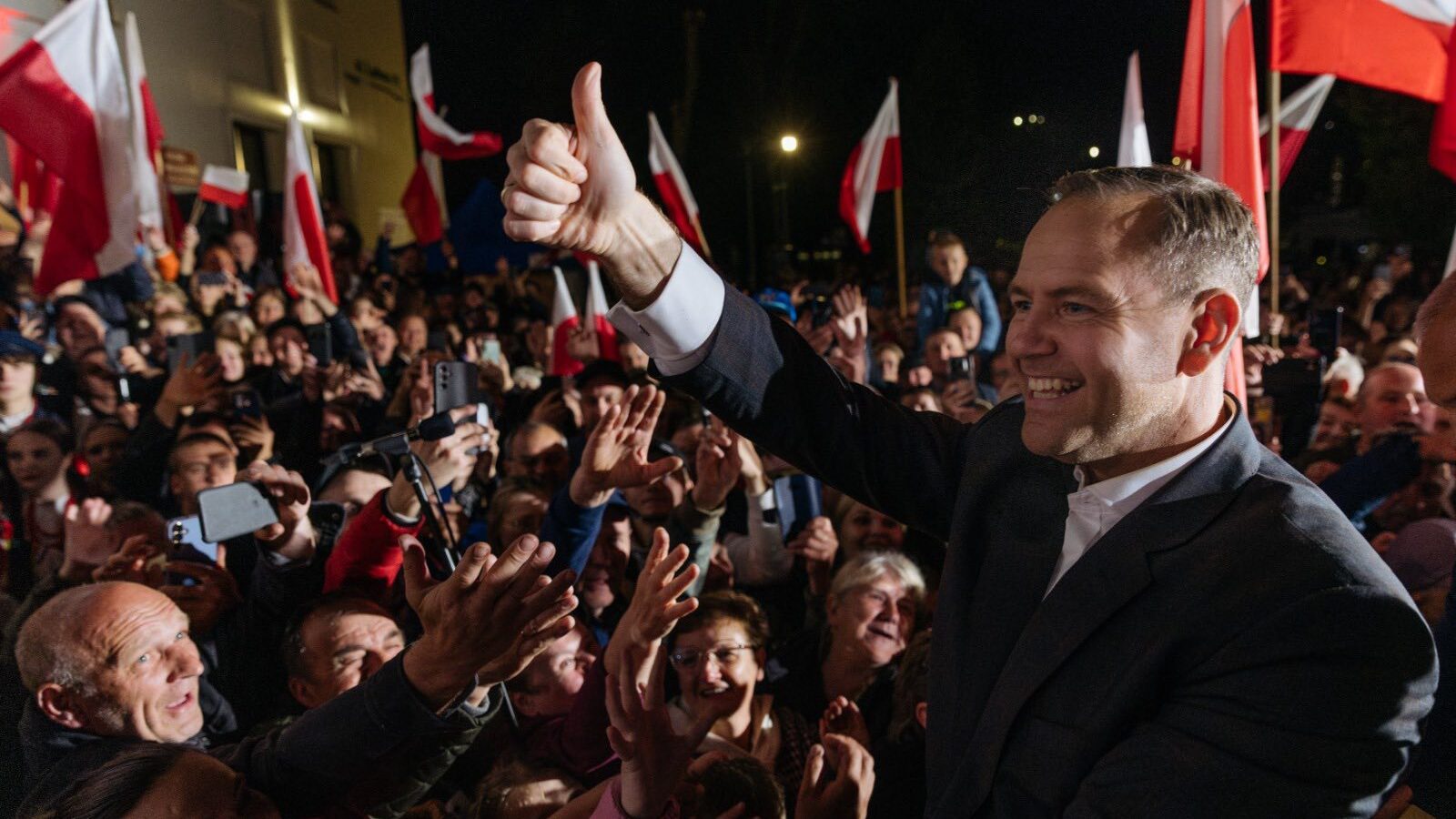Polish President-elect Karol Nawrocki said he admires Ukraine’s bravery when standing against Russian imperialism, which he considers the greatest threat to East-Central Europe, but stressed that Ukraine must also understand that its fast-tracked EU accession is not in the interest of most member states in the region.
“I oppose Ukraine’s accession to the EU at this moment. However, I recognize that we need to support Ukraine from a strategic and geopolitical point of view,” Nawrocki told the Hungarian outlet Mandiner on Saturday, June 7th, in his first international interview since he was elected. The choice is symbolic, as the conservative president-elect aims to repair the two countries’ historical relationship which has been broken under the past 18 months of PM Tusk’s governance.
As a lifelong anti-communist activist and historian, Nawrocki stated that he considers Russia the greatest threat to the whole region. “It’s a post-imperialist, neo-communist state, led by the war criminal Vladimir Putin,” he said, adding that he’s been personally threatened by Russia just for leading the Polish Institute of National Remembrance since 2021.
At the same time, he warned, Kyiv must understand that many EU member states, including Poland, Hungary, and others, have their own national interests as well.
In the Polish context, he brought up as an example the exhumation of the victims of the Volhynia Massacre—an ethnic cleansing of 100-200,000 Poles by Ukrainian nationalists in Eastern Galicia during the Second World War—as well as the “unjust” agricultural advantages given by the EU to Ukraine at the expense of Polish farmers. “We need to find compromises on these issues.”
Nawrocki underlined:
I believe Ukraine is defending itself very bravely, but it also needs to respect other countries’ interests, especially since they supported it from the very beginning. And Poland has been a leader in this regard, thanks to the commitment of [outgoing] President Duda and the hospitality of the Polish people.
On the international front, Nawrocki also said that one of his priorities will be restoring the cooperation between members of the ‘Visegrad Four’ (V4)—Poland, Czechia, Slovakia, and Hungary—which has all but disbanded since the election of PM Donald Tusk in late 2023. Unlike the prime minister, Nawrocki considers Hungary a key ally, with a long common history, especially in the fight against communism.
Tusk’s liberal governance is also why he was elected in the first place, he said, “to restore normality, order, and peace in Poland,” and to provide much-needed checks and balances to put an end to the rule of law abuses of the current administration.
“Throughout the campaign, I raised my voice for the Poles: farmers, who fear for their livelihood; parents who don’t want foreign ideology in schools,” Nawrocki said. “I spoke up for those whose voices could not be heard in Donald Tusk’s Poland.”
The same goes when it comes to Poland’s place in the EU, to which Tusk is more than happy to submit at every turn.
“I believe in the EU, but not as a quasi-state, but as a community of independent countries that can freely use the opportunities it provides,” he said. “We are very attached to our identity, so in Poland, the Poles will decide what road we take, and we won’t submit to ideological trends that aim to destroy our most important historical values.”
Ultimately, Nawrocki thinks this was the secret of his unexpected success at the ballot. The Poles saw a liberal global elite trying to change Polish society from the outside, and said no to it. “We’ve always been a freedom-loving people,” he said, “and this was a moment when this innate need for freedom and sovereignty has awoken in the Poles once again.”
